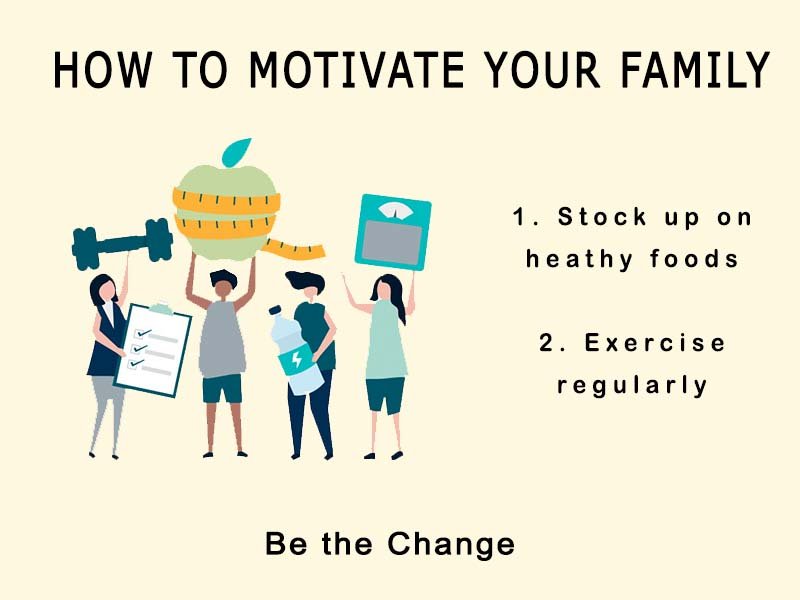How to Reduce Genetic Predisposition to Obesity?
Medically Reviewed by Katelyn J. Mock, US-Registered Dietician (R.D.)
Question – There is definitely a genetic component to obesity in my family as all of my siblings and most of our children are obese. What can we do as a family to lessen this risk, especially with children at home?
 The best thing you can do is try and live the change that you want your family to also exhibit. Bring healthier foods into the house, like a variety of fruits, vegetables, nuts/seeds, and whole grains. Is your family resistant to trying some of these foods?
The best thing you can do is try and live the change that you want your family to also exhibit. Bring healthier foods into the house, like a variety of fruits, vegetables, nuts/seeds, and whole grains. Is your family resistant to trying some of these foods?
That’s okay, it takes time. After people are exposed to new foods it may take them a while. The best way to get your kids or spouse to try something new is to see you enjoying it. Children often have to be exposed to new food 10-20+ times before acceptance.
No one wants to be forced to do anything, but gentle encouragement to try one bite of new food is a great alternative. Making positive changes in the food you eat and the activities you do, make you feel a lot better visibly. When your family members see the change in you, they’ll be motivated to do the same too.
With regards to young children, there are several areas that most American families need to work on.
1. Eat everything in moderation: It is important for children to see adults enjoying healthy foods, but occasionally having other things like ice cream or chips in moderation too.
2. Don’t force the children: Don’t force kids or grand-kids to eat everything on their plate. By making kids eat everything, we are teaching them to not listen to their own hunger/fullness cues. If your child doesn’t finish her meal, put it away and present it when she feels hungry again. Tell her that if she is hungry she needs to finish what she served herself at dinner first. After some resistance, the child will learn what to expect at meal times.
3. Serve desserts with dinner, not after: If dessert is being served, serve a small portion with the rest of dinner so that you don’t put that focus on desserts as being more important than the rest of the meal. When we tell children, “finish your vegetables so you can have dessert,” we are essentially saying that the dessert is the reward for the rest of the meal. While this may seem harmless, it is simple actions like this, taught early on that make us value desserts and other snack foods more than the other items on our plate. Kids will go for the dessert frequently if that is served with the rest of the meal but they also will eat some of those vegetables and some of the main dish as well. Also, you don’t need to give them a huge piece of cake. You can give them a small piece while also serving steamed broccoli and meatloaf or potato.
4. Reward your children with activities: Another area to work on is not rewarding yourself or a loved one with food. If your child earned an A on their report card, take them to a movie or to the zoo or buy a new toy instead of taking them to get ice-cream.

